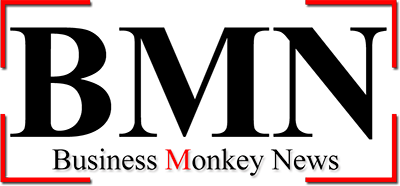Congrats! You’ve attracted some strong candidates with your job posting, and now it’s time to interview. Interviewing is more than a series of checkboxes. It’s an opportunity to connect with a potential candidate, understand their motivation and background, and determine if they’re a strong fit for your organization. Not a small task!
In this blog, we’re delving into some interviewing tips for interviewers. We want your interviews to be informative and enjoyable, resulting in a confident perspective as to whether your candidate should continue in the hiring process, or not. Here are 3 tips on how to accomplish just that.
Don’t Treat the Interview Process…Like a Process
It’s easy to treat the entire hiring experience, including interviewing, like a process. Treating interviews as non-organic conversations can seem disingenuous to the job applicant and can cause you to miss out on important information. For example, if you’re solely focusing on assessing a specific skill set, you may miss out on what the job applicant’s aspirations and motivations are for getting a new job. Use an interview not only to screen job applicants for skills but also to gauge cultural fit and alignment with your organization’s values.
Here are some examples of questions you can ask to get at that.
- What inspired you to pursue a career in this industry or field?
- Can you share a specific accomplishment you’re particularly proud of?
- What type of work or projects energize you?
- What do you hope to learn or develop in the next stage of your career?
- What about our company and this role stood out to you when you decided to apply?

Maintain Control of the Interview
It’s easy to allow a candidate to steer the interview and let the conversation get away from you. Maintaining control during an interview is crucial, but that doesn’t mean stifling the natural flow of conversation. This is why it is important to ensure that all interviews are organic, but structured, conversations.
Having a consistent structure in interviews ensures that all candidates are being assessed by the same standards and data points. Not only does this allow you to accurately compare candidates, but it also prevents claims of discrimination in hiring. Hitting specific data points in the conversation also allows for transparency of the job role to the candidate. It’s important that the job applicant understand the full scope of the role and avoid misunderstandings in tasks/job duties when a new employee is hired.
Here’s how you can strike a balance between maintaining control without being too rigid in the interview:
- Uniformity in questions: Use the same set of questions for every candidate, creating a level playing field for evaluation.
- Providing candidate comfort: Create a comfortable atmosphere, encouraging candidates to be open and share.
- Probing with purpose: Skillfully use probing questions to redirect discussions if the candidate steers off-topic.
Consider How the Interview Takes Place
Gone are the days of interviews being strictly over the phone or in person. Now there are additional options, such as one-way video interview platforms as well as video conferencing options, like Zoom and Microsoft Teams.
Your interview approach should be determined based on criteria such as the type of position being filled, how far into the interview process the candidate is, your flexibility, your time constraints, the importance you place on nonverbal communication and body language, and more.
One-way video interviews are a great asynchronous option in that it conveniently allows candidates to show parts of themselves that cannot be displayed in a resume, without yet requiring a large time commitment from the interviewer. With one-way videos and video conferencing options, a candidate’s tone, body language, and level of comfort may be easier to gauge than via a phone call, and that may be imperative in certain roles, such as customer-facing roles, for example. It’s essential to consider your job description and the desired candidate profile to make an informed choice.
Interviewing is an Art Form
Interviewing isn’t a static process; it’s an evolving art form. Staying on top of the trends and feeling confident in your preparation is essential to assessing and attracting candidates. As you embark on interviewing, remember that there are partners that can help you.
At myHR Partner we excel at creating customized hiring strategies for our clients and executing all aspects of that strategy. Learn more about our Hiring Services and request a consultation today.
This post was originally created and published by myHR Partner.

